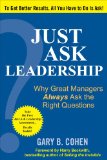Whacked-Out Workplaces: How Dysfunctional is Yours?
We’ve all been there. You walk into a bank, restaurant or store and suddenly feel it, that vague sensation that all is not well. It drips from the ceilings and sits in puddles on the floor. The employees are lost in thought, unable to decide whether they’d rather be somewhere else or stay and kill each other. And you’re the lucky one bathing in all the poison they can ladle up.
Yeesh.
I hope you’ve experienced the other side, too. You walk in the door and are gobsmacked by a sense of well-being. This isn’t just a place where people work, it’s a place that WORKS. The employees want to be there and they want YOU to be there. You feel your brow relax, and the corners of your mouth head ever-so-slightly north. You don’t wanna leave.
So which of these do YOU work in?
Hi there! This article is available for free. Login or register as a StrategyDriven Personal Business Advisor Self-Guided Client by:
Subscribing to the Self Guided Program - It's Free!
About the Author

is a New York Times, Wall Street Journal and #1 Amazon bestseller. Roxanne is renowned for her ability to transform “ho-hum” workplaces into dynamic, results-oriented, “bring-it-on” cultures in a day. Listen to the free 60-second audio with teammates each Monday to clean up the craziness in your workplace and focus on getting massive results. Sign up today at www.ThankGoditsMonday.com.

 “One man can make a difference and every man should try.”
“One man can make a difference and every man should try.” StrategyDriven Podcasts focus on the tools and techniques executives and managers can use to improve their organization’s alignment and accountability to ultimately achieve superior results. These podcasts elaborate on the best practice and warning flag articles on the StrategyDriven website.
StrategyDriven Podcasts focus on the tools and techniques executives and managers can use to improve their organization’s alignment and accountability to ultimately achieve superior results. These podcasts elaborate on the best practice and warning flag articles on the StrategyDriven website.
 Gary Cohen, author of
Gary Cohen, author of  Duane Sparks, author of
Duane Sparks, author of 
